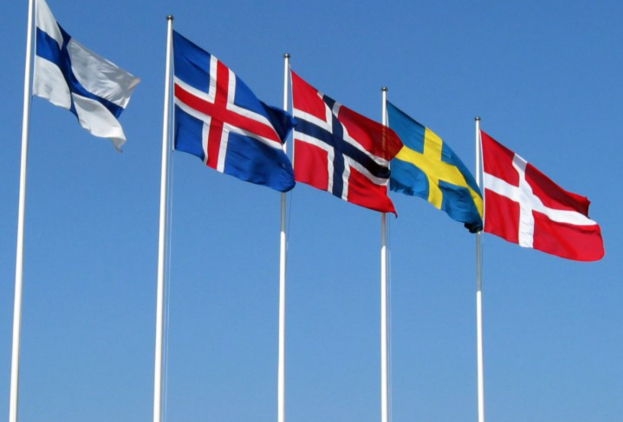 RNH Academic Director Professor Hannes H. Gissurarson gives a lecture at the Nordic Political Science Congress in Odense 8–11 August 2017 where he participates in a workshop on “Foreign Policy: Nordic Perspectives and Beyond”, directed by Tuomas Forsberg and Anders Wivel in Room U68 in the premises of the University of Southern Denmark. The lecture, “In Defence of Small States,” is scheduled at 15:15 Thursday 10 August. Gunnar Fermann from NTNU is discussant. This is an abstract:
RNH Academic Director Professor Hannes H. Gissurarson gives a lecture at the Nordic Political Science Congress in Odense 8–11 August 2017 where he participates in a workshop on “Foreign Policy: Nordic Perspectives and Beyond”, directed by Tuomas Forsberg and Anders Wivel in Room U68 in the premises of the University of Southern Denmark. The lecture, “In Defence of Small States,” is scheduled at 15:15 Thursday 10 August. Gunnar Fermann from NTNU is discussant. This is an abstract:
After the 2007–9 financial crisis, scholars argued that it showed Iceland’s unsustainability as a state. She needed a shelter such as the EU. In this paper, two sets of arguments are examined. One is economic and comparative: Small countries such as Iceland cannot enjoy economies of scale in public administration, production of collective goods and economic life in general, while their economy tend to be unstable and their political system characterised by nepotism and party patronage. Another set of arguments is mainly historical: Iceland, like other small countries, has always needed a shelter, which she found respectively in Norway, Denmark, and the US, and could now find in the EU. The examination here shows however that small states can enjoy the benefits of international free trade without having to join larger political units—a fact which explains the proliferation of small states. It is also not necessarily true that collective goods are more expensive in small states. Because of more trust and cohesion, law and order are for example on average cheaper to maintain in the Nordic countries than in bigger societies. While nepotism and party patronage certainly exist in small societies, they are not absent in larger ones. The examination also shows that while small states certainly need business partners, cultural exchanges and security arrangements, the risk is when they seek a shelter that they find a trap, as happened to Iceland in 1400–1800. Finally, the international strategy of a small nation like Iceland after the Cold War is discussed: Which option should she adopt, the Nordic, the North Atlantic or the Continental European? A possible answer is: All three, although in different fields, finding business partners in the European market, keeping close cultural ties with the other Nordic countries and seeking security arrangements with her Anglo-Saxon neighbours in the North Atlantic.
Four other Icelanders participate in the Congress, Sverrir Steinsson (in the same workshop as Professor Gissurarson), Hulda Thorisdottir, Gretar Thor Eythorsson and Eva Heida Onnudottir.
![]() Professor Gissurarson’s participation in the NOPSA conference in Odense forms a part of the joint project of RNH and ACRE, Alliance of Conservatives and Reformists in Europe, on “Europe, Iceland, and the Future of Capitalism”.
Professor Gissurarson’s participation in the NOPSA conference in Odense forms a part of the joint project of RNH and ACRE, Alliance of Conservatives and Reformists in Europe, on “Europe, Iceland, and the Future of Capitalism”.


